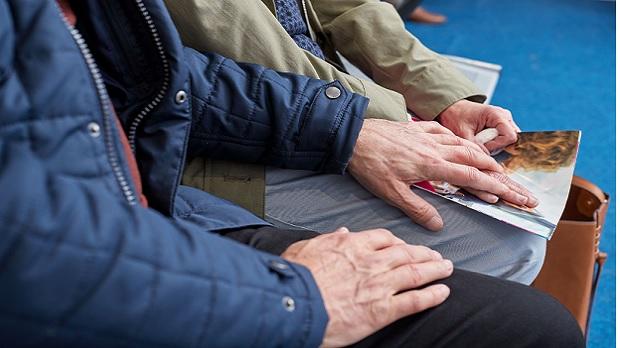55,500 more people are waiting to get tests used to diagnose four common cancers compared to last year, according to Cancer Research UK analysis,* as the charity urges the public to support its vital work.
As of May 30th, there were more than 180,000 people in England waiting for an endoscopy – a rise of 44% from the same time in 2019. And of these people, 66% are waiting six weeks or longer for these vital tests.
The charity is concerned about these cancer types because endoscopies are proving particularly challenging to get back on track. The tests are more invasive and need more complex infection control measures, eating into the time available to do the test.
The situation is worrying because bowel cancer screening has been paused, and the number of urgent suspected cancer referrals and other GP referrals to hospitals have fallen since lockdown. So, the backlog on diagnostic services is mounting despite fewer people being referred for these types of tests in the first place.
And these delays are part of a wider problem in cancer testing facing the NHS.
New figures also released by Cancer Research UK today show that in total, around 2.3 million fewer tests that help diagnose cancer have taken place since lockdown compared to the same time last year.**
From March 1st to May 30th there was a 46% drop in numbers for seven tests that are commonly used to help spot the disease, including MRI scans, CT scans and ultrasound, as well as endoscopies.
The dip is for many reasons, including people putting off seeking help at the start of the pandemic and measures needed to prevent the spread of COVID-19 – such as social distancing, deep-cleaning of equipment and use of PPE – reducing capacity and slowing down normal service.
But staff shortages were already a concern before the pandemic with 1 in 10 diagnostic posts unfilled, and the demand now is even higher. It’s vital that the NHS uses all available diagnostic capacity, including in the independent sector, to massively reduce this backlog and get cancer services working.
While plans to redeploy two Nightingale Hospitals in England (Harrogate and Exeter) for testing are a small positive step, they are expected to focus on CT scans and blood tests so will do little to diminish the endoscopy delays.
Michelle Mitchell, Cancer Research UK’s chief executive, said: “We’re over the peak of the pandemic now, so it’s worrying there is an increasing number of patients whose lives are on pause while they wait for tests that could impact their chances of survival.
“It’s crucial the Government works closely with the NHS to ensure it has the staff and equipment it needs to get services back on track before this situation gets even worse. But part of the reason the number of tests has reduced so dramatically is that people are delaying seeking help if they are worried about symptoms. So it’s more important than ever that anyone who is concerned about a change to their body speaks to their GP as soon as possible.
“Unfortunately, cancer patients have been disadvantaged by the pandemic in many ways. UK cancer research could be set back years by COVID-19 as we could be forced to cut £150 million per year from our research funding. Our mission to beat cancer has never been more urgent and it’s only with the public’s help that we’ll be able to continue funding our vital research and keep patients’ needs on the agenda.”
While many patients referred for tests may not turn out to have cancer, they still face an anxious wait. For those that do, delays may mean their cancer is more advanced and therefore harder to treat, reducing their chances of survival.
Professor Charles Swanton, Cancer Research UK’s chief clinician said: “Even in ‘peace-time’ diagnostic testing was stretched to the limit, so the NHS faces a massive challenge to fast-track the millions of people waiting to find out if they have cancer.
“An essential part of this is frequent COVID-19 testing of NHS staff and patients, including those without symptoms, so that vulnerable patients aren’t put at risk of contracting the virus and aren’t nervous about going to hospital. We need a clear and detailed plan in place to ensure increased capacity to diagnose cancer across the country to avoid further delays.
“Above all, anyone worrying about symptoms, should not be deterred from seeking help and should contact their GP.”







